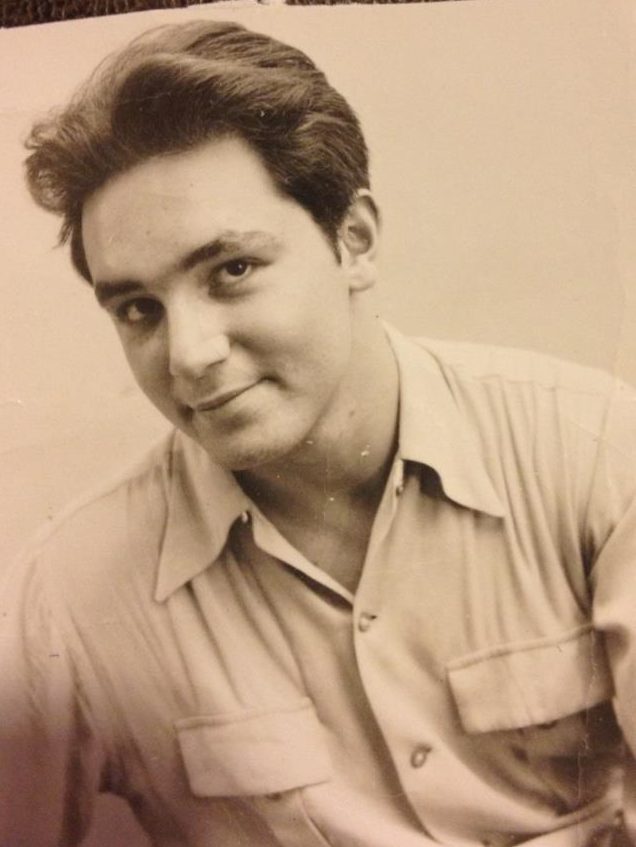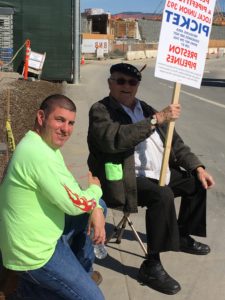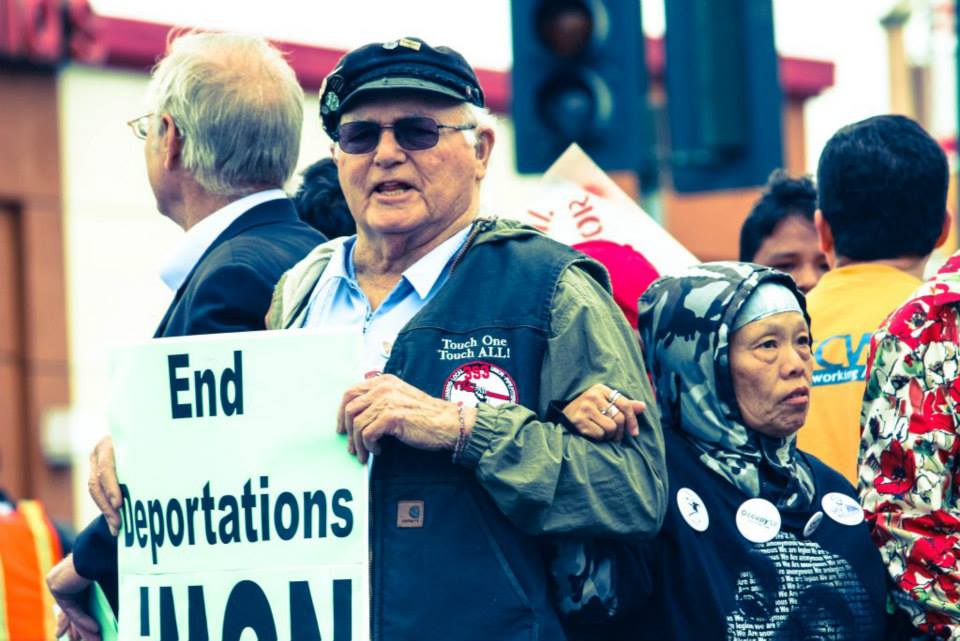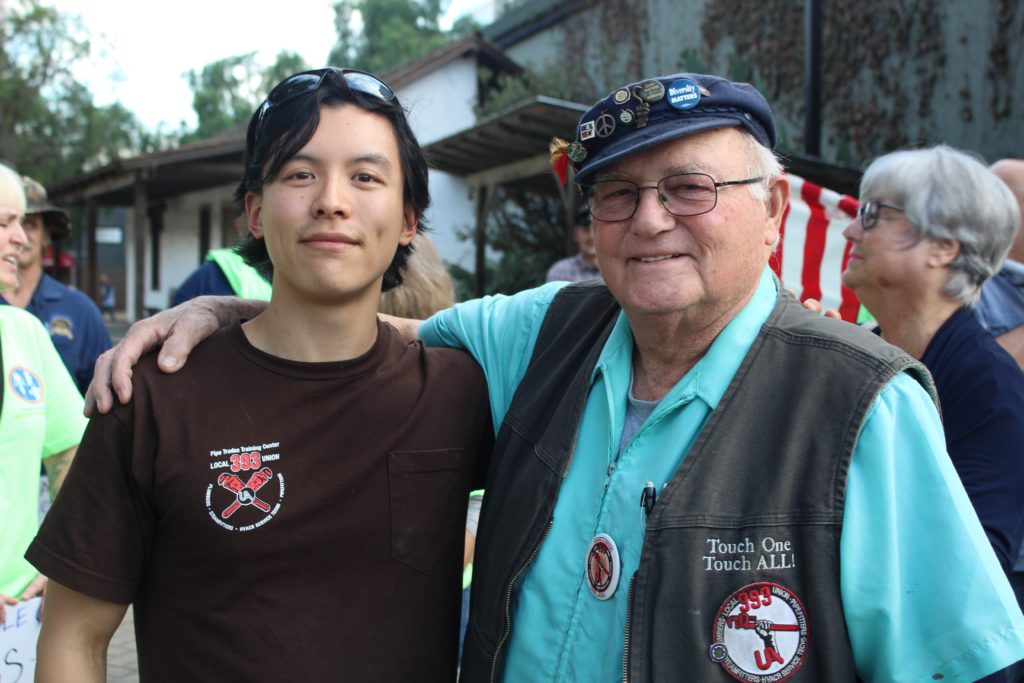Member Spotlight: Fred Hirsch
Fred Hirsch is a proud hellraiser and troublemaker.
A member of UA Local Union 393 for more than 50 years, Fred reminds us that the fight for working people doesn’t end with good jobs, wages, and working conditions. We must also have peace, equality for all, civil rights, and human rights. He is the conscience of the local labor movement, inspiring us to stand up for what we believe in, especially when it is hard.
“We have a powerful organization of 2,500 members,” said Fred. “When it speaks it shouts. What we can do to put forward our needs as working people, through the voice of our union, enhances the lives of our families, our children and our nation.”
Ask anyone about Fred and they’ll say, “He’s a good mechanic.” But he’s really known throughout the Union Movement, amongst the Building Trades, across the country, and around the world as the man who helped transform our union into a dynamic force for progressive change.
 Fred became a plumber because he wanted to be part of the working class. In 1953, he started his apprenticeship in New York and quickly became an outspoken — and sometimes unpopular — voice in his Local, encouraging workers to protest the Korean War and admit more African-American union members. One union official told Fred, “If you pass the test, kid, we want you out of here.”
Fred became a plumber because he wanted to be part of the working class. In 1953, he started his apprenticeship in New York and quickly became an outspoken — and sometimes unpopular — voice in his Local, encouraging workers to protest the Korean War and admit more African-American union members. One union official told Fred, “If you pass the test, kid, we want you out of here.”
California was calling. Fred took his wife and kids to Los Angeles, where his politics made it difficult for him to work. McCarthy-era rumors that Fred was a Communist followed the Hirsch family to San Jose, where Fred joined Local 393. But Fred explained himself saying, “If you want to ask every member of the union their political affiliations and thoughts, then you’ll come to me along the line.” The issue was dropped, and the local president defended Fred as the union’s Committee on Political Education (COPE) representative and delegate to the South Bay Labor Council.
In 1958, Fred founded Local 393’s Political Committee to help beat back Proposition 18, an unsuccessful ballot measure that would have made California a so-called right-to-work state.
 As the Civil Rights Movement came alive, Fred was on the frontlines. He and his wife Virginia were active members of the Santa Clara Friends of Student Nonviolent Coordinating Committee (SNCC), and Fred encouraged Local 393 to make contributions to the movement. He brought leaders like Stokely Carmichael to speak in the South Bay, and traveled to Mississippi to deliver supplies. Once, after making a motion to support a civil rights organization, Fred was knocked out and dragged out of a union meeting; but he earned the respect of his fellow workers and even opened some minds when he immediately walked back in.
As the Civil Rights Movement came alive, Fred was on the frontlines. He and his wife Virginia were active members of the Santa Clara Friends of Student Nonviolent Coordinating Committee (SNCC), and Fred encouraged Local 393 to make contributions to the movement. He brought leaders like Stokely Carmichael to speak in the South Bay, and traveled to Mississippi to deliver supplies. Once, after making a motion to support a civil rights organization, Fred was knocked out and dragged out of a union meeting; but he earned the respect of his fellow workers and even opened some minds when he immediately walked back in.
When Cesar Chavez began organizing migrant farm workers across California, Fred stood alongside him, battling the exploitative business practices of growers. He even moved his entire family to better help the fledgling union’s development.
Fred worked to build international solidarity. To better educate the membership and US organized labor, Fred traveled across South America and reported on the horrific treatment of trade unionists. He marched through the tear gas in the streets of Bogota and raised his fist alongside the massive May Day crowds in Mexico City.
Fred pushed the local labor movement to champion peace. He rallied members to demonstrate against the Vietnam War, Afghanistan War and Iraq War. Fred successfully enlisted the South Bay Labor Council, then millions of members of the California Labor Federation, to join US Labor Against the War, an organization dedicated to demilitarizing US foreign policy.
Fred also expanded the union’s advocacy into issues like comprehensive immigration reform and protecting the environment. “We must make sure all people — regardless of gender, race, or religion — all have an equal stake and receive equal advantage,” he said.
At 83 years old, Fred continues to, in his words, “Organize, organize, organize.” You can find him knocking on doors, phone banking and leafleting to improve our communities. He’s agitating against corporate America’s assault on unions. He is marching for democracy and justice. He noted, “I would not be true to myself or to the movement of working people throughout the nation if I didn’t do what I could.”



